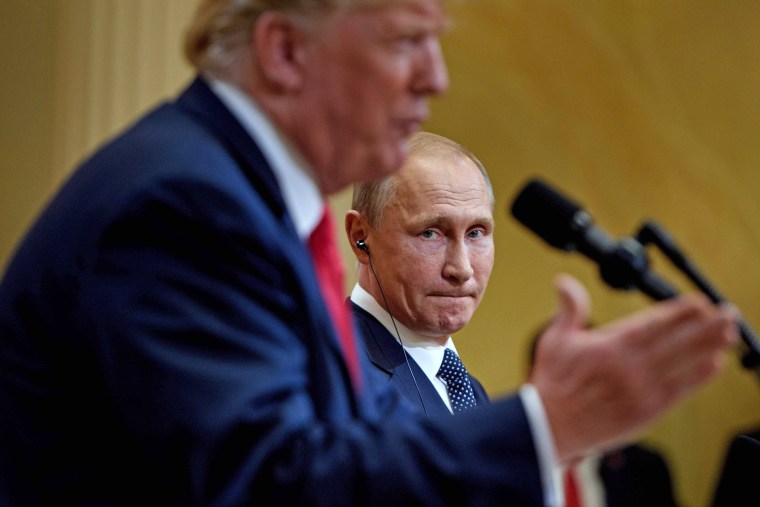When it comes to Russia targeting U.S. elections to help Donald Trump, connecting the dots is a straightforward exercise. William Evanina, Trump's director of the National Counterintelligence and Security Center, for example, recently released a statement documenting the fact that Kremlin-linked operatives are actively involved in an effort to keep the Republican in power.
Soon after, the Department of Homeland Security issued an intelligence bulletin warning about Russian efforts to undermine our elections with false claims about our electoral system, which just so happened to echo the White House's talking points.
Then, of course, FBI Director Chris Wray delivered sworn congressional testimony describing "very active efforts" by Russia to interfere in the 2020 election by trying to "denigrate" the Democratic candidate.
Now, it's apparently the Central Intelligence Agency's turn.
The CIA assessed in late August that Vladimir Putin and other top Russian officials are "probably" directing a Russian operation to intervene in the election by discrediting Joe Biden, current and former intelligence officials told NBC News.
In addition to the NBC News report, the New York Times added yesterday, "President Vladimir V. Putin of Russia is most likely continuing to approve and direct interference operations aimed at raising President Trump's re-election chances, a recent C.I.A. analysis concluded, a signal that intelligence agencies continue to back their assessment of Russian activities despite the president's attacks."
Given all of this, it's worth focusing on how Trump and his team are responding to the multi-agency evidence about a foreign adversary targeting another American election cycle.
First, we see the president lashing out at his own handpicked FBI director for telling the public the truth about Russia and its apparent latest attack on our political system.
Second, according to a whistleblower at the Department of Homeland Security, officials have been directed not to alert law enforcement to Russian efforts to interfere in our elections. By some accounts, Trump political appointees directed officials "to stand down on reporting about the Russian threat."
It's against this backdrop that Politico reports today that the CIA "has made it harder for intelligence about Russia to reach the White House, stoking fears among current and former officials that information is being suppressed to please a president known to erupt in anger whenever he is confronted with bad news about Moscow."
Nine current and former officials said in interviews that CIA Director Gina Haspel has become extremely cautious about which, if any, Russia-related intelligence products make their way to President Donald Trump's desk. Haspel also has been keeping a close eye on the agency's fabled "Russia House," whose analysts she often disagrees with and sometimes accuses of purposefully misleading her. Last year, three of the people said, Haspel tasked the CIA's general counsel, Courtney Elwood, with reviewing virtually every product that comes out of Russia House, which is home to analysts and targeters who are experts in Russia and the post-Soviet space, before it "goes downtown" to the White House. One former CIA lawyer called it "unprecedented that a general counsel would be involved to this extent."
In case this weren't quite enough, the New York Times reports today that the line between Kremlin propaganda and Donald Trump's election rhetoric has become so blurred that Russian intelligence agencies are "largely amplifying misleading statements" from the American president himself.
The article added, "In interviews, a range of officials and private analysts said that Mr. Trump was feeding many of the disinformation campaigns they were struggling to halt. And rather than travel the back roads of America searching for divisive issues ... they are staying home, grabbing screenshots of Mr. Trump's Twitter posts, or quoting his misleading statements and then amplifying those messages."
Reflecting on Russian efforts to get him elected four years ago, the president has repeatedly accused the Obama White House of doing "nothing" to stop the attacks. The argument has always been wrong, but in 2020, Trump and his team are taking steps that are much worse than "nothing."

